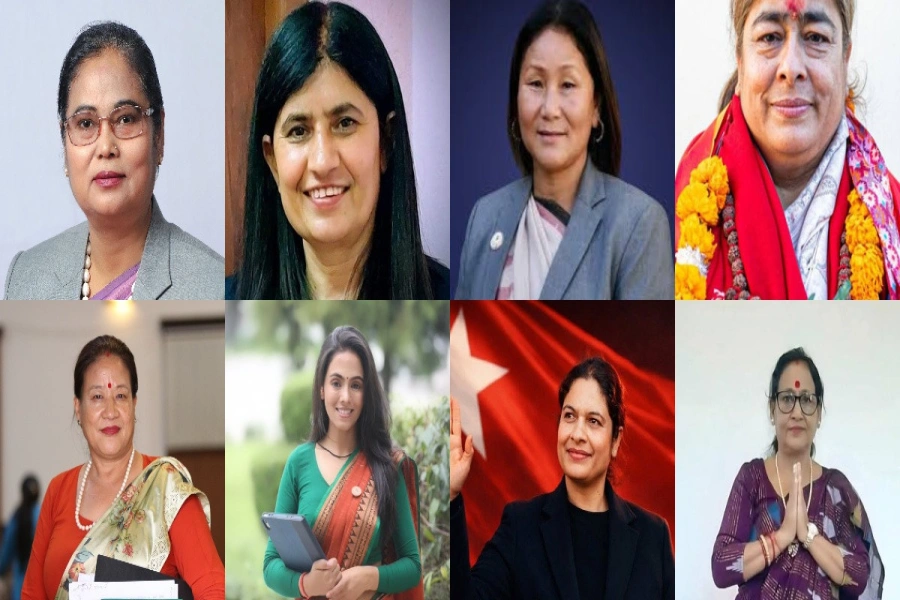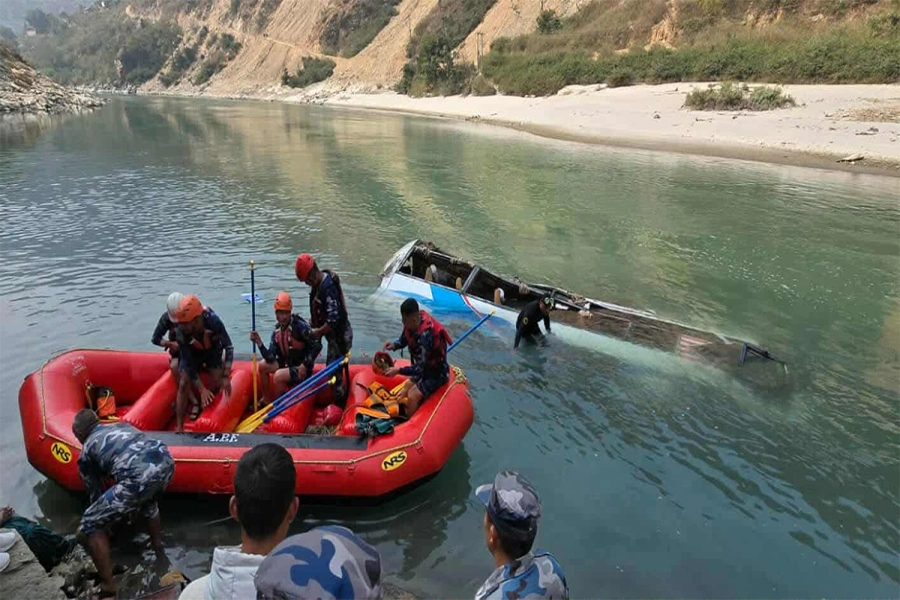“Even as we are withdrawing our force, we are not disengaging from Afghanistan. We are remaining deeply engaged in diplomacy, in support for the Afghan government and its people, development economic assistance, humanitarian assistance, and support for the security forces.”
On September 11, 2001, nineteen terrorists armed with knives hijacked four US aircraft and slammed them into the American landmarks World Trade Tower in New York and Pentagon in Washington killing almost 4,000 people on American soil.
There was an outpouring of support, and solidarity for America. France’s Le Monde editorialized, “We are all Americans.” The world came together. A diverse America witnessed a surge of patriotism. Even arch enemies the US and Iran reportedly maintained discreet and productive dialogue in the weeks following the September 11 attacks. The common cause was the global war on terror (GWOT). However, the discreet talks ended when President George W Bush labeled Iran as part of the ‘axis of evil,’ in January 2002 State of the Union Address.
On October 7, 2001, President Bush ordered the United States military to begin “strikes against al Qaeda terrorist training camps and military installations of the Taliban regime in Afghanistan.” “These carefully targeted actions,” he added, “were designed to disrupt the use of Afghanistan as a terrorist base of operations and to attack the military capability of the Taliban regime.” The military operation was named Enduring Freedom. It was to ensure that Afghanistan never again became a staging area for an attack on the US homeland. Bush said, “We defend not only our precious freedoms, but also the freedom of people everywhere to live and raise their children from fear.” In his address to the Congress, President Bush said, “This is the world’s fight. This is civilization’s fight.” This makes it a sustained, comprehensive, and relentless operation to drive terrorists out and bring them to justice.
Troops from over 40 countries made up the International Security Assistance Force (ISAF) to fight the adversaries based in several countries across the globe. President Bush vowed, “We will not waver; we will not tire; we will not falter; and we will not fail. Peace and freedom will prevail.” Supporting this, British Prime Minister Tony Blair said, “There is no compromise possible with such people, no meeting of minds, no point of understanding with such terror. Just a choice: defeat it or be defeated by it. And defeat it we must.”
GWOT brought Americans in Afghanistan to defeat terrorism and defend their homeland from deadly threats. Americans stayed longer than the Soviets in Afghanistan, applied every approach in two decades of war to correct the misrule and misdeeds of the Taliban rule under which all Afghans suffered - the girls and women the most and worst. The war that caused misery and anxiety seemed unwinnable. The mission to build Afghanistan, with economic and social development and to foster long term stability and create a climate in which al Qaeda and its Taliban protectors could not survive, took longer than anticipated. The thought of a stable and democratic Afghanistan as the best possible bulwark could not be realized though the ability of terrorist organizations and their sponsors to strike American homeland was considerably weakened.
Afghanistan quake kills 1,000 people, deadliest in decades

For 20 years, Americans fought insurgency. The fight became illusory as insurgents kept finding sanctuary across the border where they could easily go hiding. Afghan-Pakistan border proved to be a difficult theater to tame and train for the US national security team. As Kabul-Islamabad relations remain key, outside power - however powerful - could not bring peace and stability. The Taliban never recognized the government in Kabul, as they kept calling it an illegitimate puppet of Americans. Years of fighting have shown that there has to be a political settlement of differences and disputes. As President Ghani recently wrote in Foreign Affairs: “a political settlement and the integration of the Taliban into the society and government is the only way forward.”
A diverse and fractious country, Afghanistan is often portrayed as the “Graveyard of Empires” as nation after nation have failed to keep order there, exiting at last. Despite the presence of the most powerful military for two decades, Taliban and insurgent groups have made impressive comebacks.
The Taliban was ready to negotiate with the US, not with the government of Afghanistan. The Trump administration and the Taliban after their Doha dialogue reached a deal without the Afghanistan government on February 28 last year. Under the terms of the deal signed with the Taliban, all US troops and contractors were to leave by May 1 in return for the security guarantee from the Taliban. Under the deal, US-Taliban agreed to release 5,000 Taliban prisoners without consulting the Afghan government. Former US Ambassador to Afghanistan, Ryan Crocker writes “this critical concession delegitimated the Afghanistan government and sent a clear signal to the US allies and adversaries alike that their talks were not about peace but rather were about an American surrender, resembling in this sense the Paris Peace Accord that ended the Vietnam’s war.”
President Biden chose the options of bringing the American troops back home on the 20th anniversary of the terrorist attacks on September 11. The year 2021 also happens to be the 10th anniversary of killing Osama bin Laden in a US raid at Abbottabad in Pakistan in May 2011. This brings America’s longest war to an end. The withdrawal was not sudden and unexpected. President Obama announcing the surge in December 2010 had said, “It must be clear that Afghans will have to take responsibility for their security… That is why our troop commitment in Afghanistan cannot be open-ended because the nation that I am most interested in building is our own.” President Biden’s announcement is seen as a game changer. He is said to have chosen to focus on big power rivalry on the Indo-Pacific where US contradictions with China in East Asia are sharpening, threatening US interests.
What would post-withdrawal Afghanistan look like and what will be its likely consequences? Could the fragile, civil society survive a full US departure? These are some of the questions that are being debated and discussed with importance.
Taliban’s comeback seems sure. They have shown “they can prevail.” As the withdrawal will end their complaint of the presence of foreign troops in the country, the Taliban will have to present their vision for Afghanistan free of foreign troops presence as the withdrawal of foreign forces will clear the way for the Afghan people to achieve real sovereignty. President Ghani writes “Afghanistan cannot and absolutely will not go back to the horrors of the 1990.” The best option he concludes will be “a sovereign, Islamic, democratic, united, neutral and connected Afghanistan.”
The ability of weak Afghan security forces to handle the post-exit scenario is reported to be under question. Analysts view the future of Afghanistan as more precarious than at any point since 9/11. Without the US forces in Afghanistan, US humanitarian and development progress is unlikely, continuation of the present government in Kabul looks unlikely, as President Ghani has indicated that he is willing to end his term early if talks with the Taliban secures peace. Even the maintenance of the US embassy in Kabul after withdrawal is said to be unclear. President Ghani has called for continued US and NATO funding for Afghan security forces and for Taliban to respect the rights of women.
Former President Obama promised the Congress in 2011 that the United States would not be “switching off the lights” in Afghanistan. Defence Secretary Robert Gates in his testimony to Congress in 2011 had reiterated the position that “We will not repeat the mistakes of 1989, when we abandoned the country only to see it descend into chaos and into Taliban hands.” President Biden has vowed to continue American engagement. From President to Secretary of State, the reiteration has been that “Even as we are withdrawing our force, we are not disengaging from Afghanistan. We are remaining deeply engaged in diplomacy, in support for the Afghan government and its people, development economic assistance, humanitarian assistance, and support for the security forces.”
Few countries match Pakistan in sharing culture and history with Afghanistan. As a patron to Afghan Taliban, Pakistan has a big decision to make and role to play for peace and stability in Afghanistan. A disorderly Afghanistan is most likely to draw its neighbours Pakistan, Iran, Tajikistan, and Uzbekistan into competing warlords’ internecine struggle and controlling zones divided along ethnic and sectarian fault lines. That would be a ruinous path.
During the Cold War, in the name of anticommunism, an unholy and uneasy alliance was made. The US worked with Pakistan, Saudi Arabia and others and backed Afghan Mujahideen in their fights against the Soviets in Afghanistan. After Soviet defeat, US President Ronald Reagan was quoted comparing the Afghan Mujahideen leaders to be “the moral equivalents of America’s founding fathers.” The Soviets left Afghanistan in 1989, the US also got disengaged. The vacuum after Soviet withdrawal and American abandonment of Afghanistan sowed the seeds of religious fanaticism, and emergence of the Taliban, which in turn made Afghanistan a safe haven for al Qaeda terrorists. The neglect by the international community paved the way for Taliban to power.
Benazir Bhutto records her meeting with President Bush in June 1989 having told him, “I fear we have created a Frankenstein that will come back to haunt us.” In recent annual threat assessment, the US Office of the Director of National Intelligence said, “The Taliban is likely to make gains on the battlefield, and the Afghan government will struggle to hold the Taliban at bay if the coalition withdraws.” Reports indicate that “hundreds of thousands” of al Qaeda sympathizers are reported to be in Afghanistan. The Wall Street Journal editorialized on April 13, 2021 withdrawing all US troops risks the return of al Qaeda and ISIS.
In matters of geography, the US remains a distant power. China is Afghanistan’s neighbour. Beijing has engaged Taliban who see China as a valuable partner in pursuit of their interests. Chinese leadership seems aware of the relative advantage it will have in South Asia and beyond. What Beijing fears is the spillover of religious and ethnic separatism from Afghanistan into the Chinese province of Xinjiang. With India in Covid crisis, China initiated a dialogue with South Asian five (Afghanistan, Bangladesh, Nepal, Pakistan, Sri Lanka), and promised to provide vaccines and medical assistance. This has enhanced China’s geopolitical standing in the South Asian region.
Afghanistan has been a venue for two great wars. In the late twentieth century, Afghanistan was the site of a bitter Cold War between the Soviet Union and the West led by the United States. And in the early twenty-first century, Afghanistan became a staging ground for deadly terrorist attacks on America. In the first war, the US worked with Pakistan arming extremist elements against the Soviets. That sowed the seeds of terrorism that struck the United States in the early twenty-first century. Many analysts view the collapse of the World Trade Center towers in New York “to be as consequential as the fall of the Berlin Wall.”
The Covid-19 crisis is raging like a seismic event with no respect to national boundaries. It has accelerated the shifting of geopolitical trends and is intensifying geopolitical rivalry as was manifested in the recent vaccine diplomacy. Afghanistan has become a political necessity for both established and emerging powers. This makes South Asia an epicenter of new geopolitics, which is likely to set the parameters of international cooperation and competition, global rules, and norms. The need is to watch the unfolding events carefully, closely, critically, and comprehensively and develop knowledge and wisdom to navigate through complex and interrelated challenges.







-1770648553.webp)































